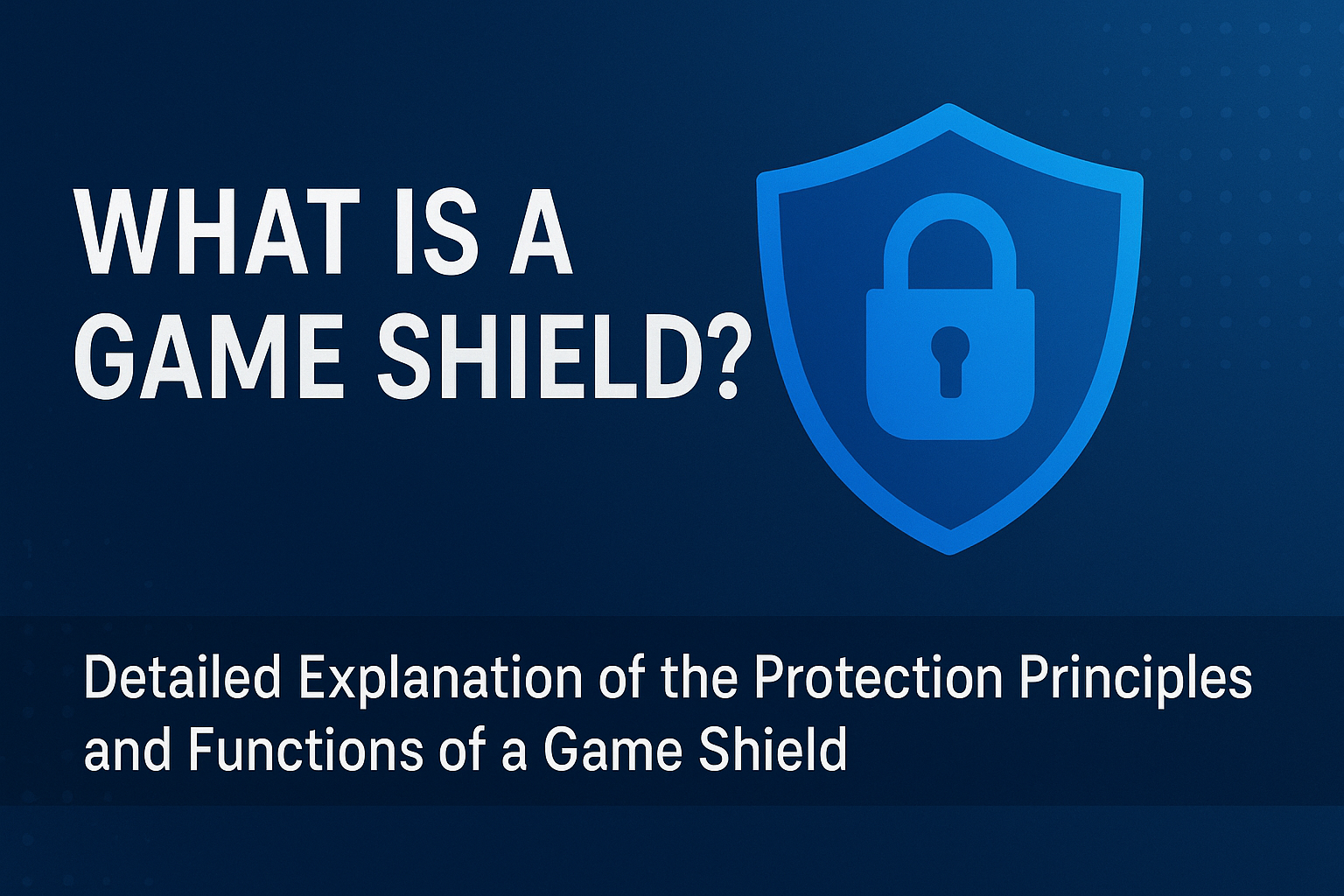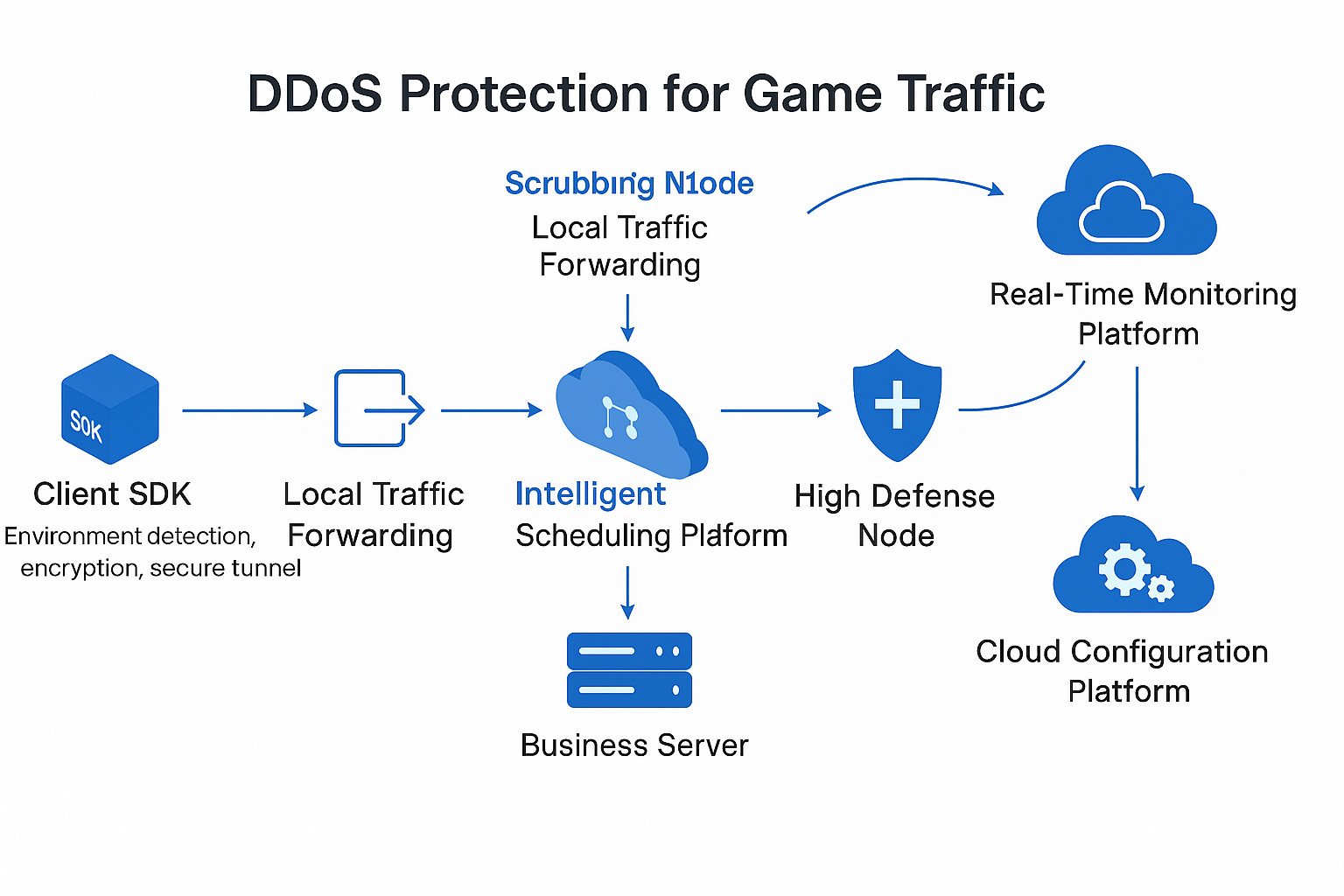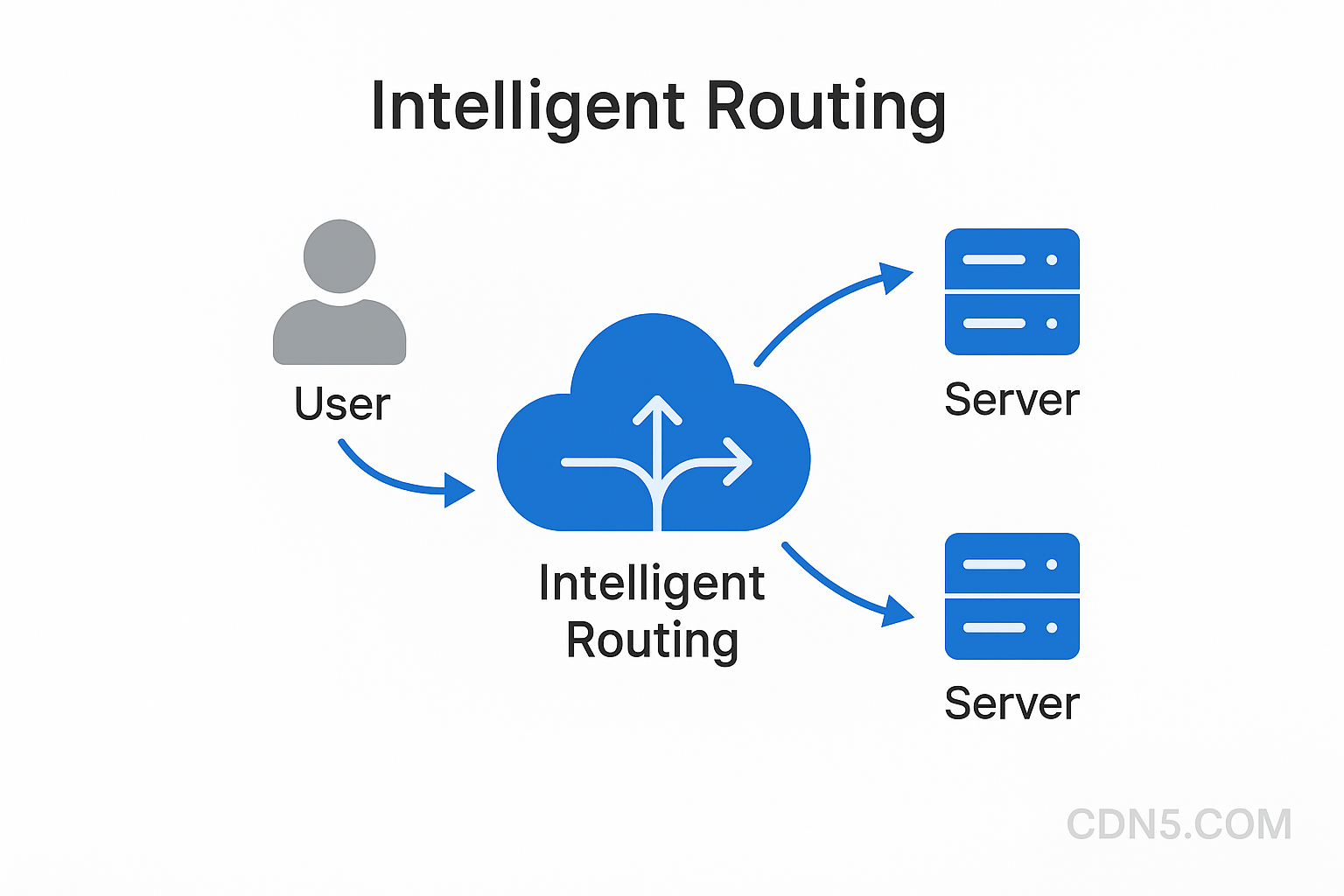No products in the cart.
What is GameShield, how GameShield protects gaming sites, apps from DDOS attacks, CC attacks, how to intercept fraud and cheating, what are the benefits of using GameShield, and frequently asked questions, this article to get it all at once!

I recently received a particularly interesting inquiry. A developer's game was attacked a few days after it was launched, players' logins crashed, and the game interface was directly paralyzed. Anxious like an ant on a hot pan, he came to consult me: “I accessed the game CDN of other families, can not prevent ah, your ‘game shield’ can block this kind of attack?” I smiled at that time, thinking: this can be no problem, we have been practicing for so many years, are specialized in dealing with these things. Then, I talked to the customer about the architecture of their game, and explained in detail how our product protects the game.
The customer said that he had accessed the game CDN but could not prevent, in fact, to be frank, to provide this kind of protection service companies are similar, basically is to set up some firewalls, write rules to intercept traffic. But if you know a little bit about the special needs of the game, you know that game protection and general site protection is not the same. There are several reasons for this:
Protocols are different: While websites usually use HTTP/HTTPS protocols, games rely on many other protocols, such as UDP, or even some less common protocols. Behind every player action in a game involves instant data transfer, which requires high speed and low latency.
The attack surface is too large: When it comes to attack points, games can be much more complex than ordinary websites. Logging in, payment, matching, leaderboards, all these links can be attacked. If one of these links is breached, the consequences are unimaginable, which may lead to server crash, player dropout, and even data loss.
Therefore, we have customized a protection system for the gaming industry - “Game Shield”. Simply put, this solution not only defends against DDOS, but also ensures a smooth gaming experience, while also taking acceleration into account.
Second, the game shield protection DDOS / CC attacks
When it comes to why game servers are particularly vulnerable to attacks, there are actually a few “pain points” that we need to understand:
UDP traffic easily “flooded” the server: UDP protocol does not have a connection establishment mechanism, the attacker can be in any corner of the world to launch attacks on the target server, like a faucet turned up to the maximum, the server's bandwidth, CPU, memory will be exhausted. Especially in the case of a game like “Chicken” that requires high concurrency and a surge in traffic, the server is like a race car that suddenly stalls and gets stuck.
CC attacks often attack the game interface: many important functions in the game, such as login, payment, and leaderboards, rely on TCP connections. Attackers force the background to verify connections one by one through massive requests, and in the end, the server is dragged down, and players directly drop out of the game, making it impossible to play normally.
How to defend against it?
Baseline monitoring: We will deploy monitoring nodes around the world to track the pattern of normal traffic in real time. For example, how many requests per second, what the packet size is like, and what normal traffic should look like. If the traffic exceeds this baseline, an alert will be triggered and the system will automatically direct the abnormal traffic to the cleaning nodes.
Basic filtering: We have high-performance hardware to deal with this problem, and can quickly identify and “clean up” those packets that do not meet the standard. For example, if a UDP packet is not in the right format, the system will block it and remove the “junk” traffic.
AI Intelligent Analysis: Often, attackers disguise themselves as normal traffic, which requires AI, which will analyze the traffic based on multi-dimensional characteristics, such as frequent IP jumps, too many requests in a short period of time, etc., to intelligently determine whether there is an attack.

Third, intelligent routing
When you play games, you may encounter this situation - obviously close to the game server, but the network signal is always unstable. Especially when you think you're playing locally, but you always get disconnected and lagged, as if you're being “pitched” by aliens. The good thing about GameShield is that it can help you solve this problem.
Many people think that GameShield “caches data closer to the player”, but in fact, distance alone can't solve all the problems. We need to understand the question: what is the quality of the network path? Sometimes, even though the servers are physically closer, the quality of the network itself is so poor that you get higher latency.
So, how to do it?
With intelligent routing technology, we can monitor which routes are “good” and which are “bad” in real time. When a route is as slow as a snail, the traffic is quickly and automatically redirected to another faster, more stable route. It's like when you're driving and you're stuck in a traffic jam, and your navigation automatically plans a detour for you.
Moreover, if you are a cross-region player, for example, you are in the United States, and the game server is in Europe, through the dedicated line back to the source technology, to ensure that you can not only connect to the game, but also to maintain a low latency, does not affect your gaming experience at all. This is like having a special “through train” for you, saving a lot of trouble to take a detour.

Fourth, anti-hijacking cheating
As we all know, there are all kinds of threats on the network, and the most headache is none other than the man-in-the-middle attack. Imagine, between you and the game server, suddenly someone squats in the middle to intercept all your communication data, steal your account, and even tamper with the game information, it is simply intolerable.
But don't worry, we've got enough protection to make sure that these “hackers” can never carry out their attacks. How do we do it?
First of all, all of our communications are fully encrypted, which basically locks the entire “conversation” between you and the server into a safe. Even if a hacker overhears, your data can't be opened.
Besides, every login request in the game generates a unique session ID and is bound to the player's IP and device information. If you suddenly find that a request from a certain IP does not match this session ID, the system will immediately react: this is not right, immediately an additional verification step, so that these hackers do not have any opportunity to take advantage of.
And in order to prevent DNS contamination, protective measures like DNSSEC technology and Anycast nodes are like adding an extra layer of insurance to the game, so that no matter where you play, you are always connected to the server you really want to play on, not a fake server that has been maliciously tampered with by hackers.
Q: Will enabling Game Shield slow down normal players’ internet speed?
A: Under normal conditions, CDN5 Game Shield uses intelligent routing to optimize traffic. Cleansing and encryption occur within milliseconds, so there’s no noticeable impact. Only during large-scale attacks might a short CAPTCHA verification appear.
Q: Can CDN5’s AI mistakenly block normal players?
A: The AI model has been trained extensively to distinguish regular players from bots or cheats, with a very low false-positive rate.
Q: How is Game Shield different from standard CDN/WAF?
A: Traditional CDN/WAF focuses on static content delivery and web security. Game Shield, on the other hand, is tailored for real-time gaming traffic, offering specialized protection and optimization.